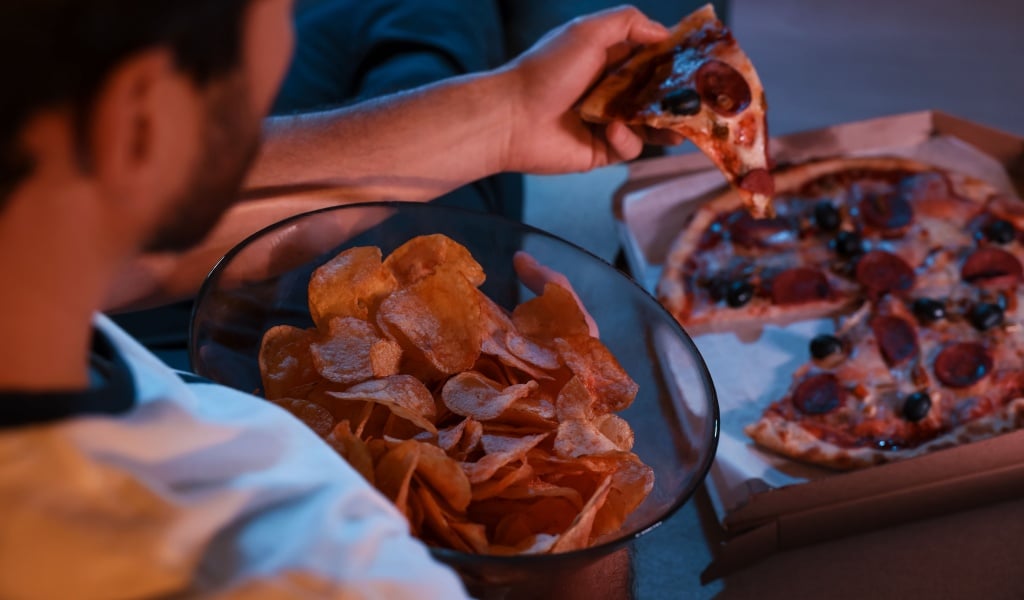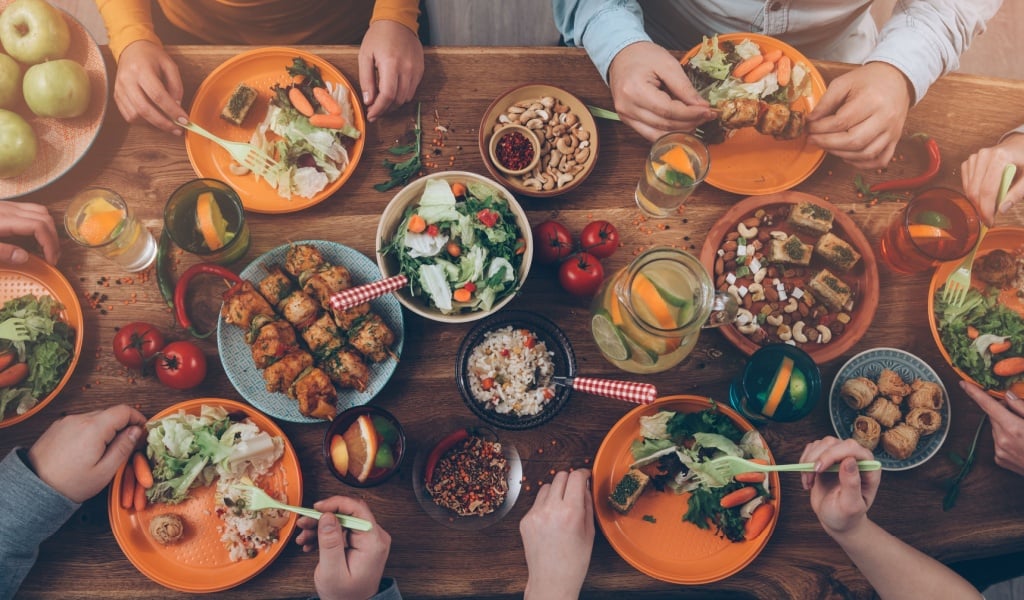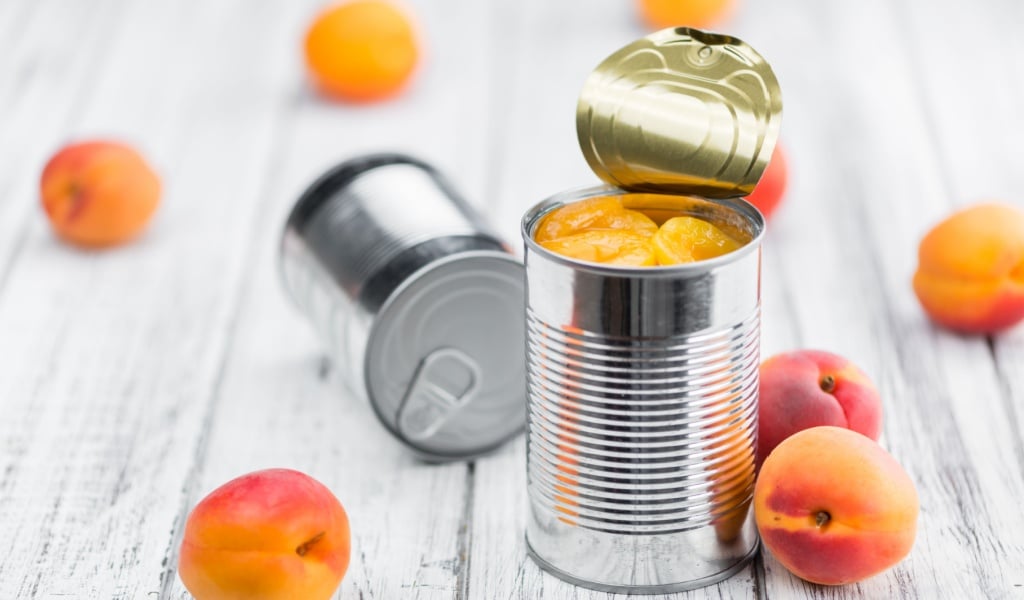We’ve often found ourselves munching on a bag of chips or cookies, thinking: “Just one more… and maybe another…” If only resisting the temptation of processed food were as easy as practicing self-control at a yoga class where the only snack offered is cucumber water. So, the big question: are processed foods addictive, or is it just a convenient excuse?
According to experts, an increasing number of studies indicate that this is a very real issue. So, let’s unpack the case, one glossy wrapper at a time.

The Science Behind the Cravings
As always, it’s the lab rats that come first. In basic experiments, those little furballs picked sugar over even cocaine! They continued, even self-administering shocks, to keep receiving their sugar fix. In simple words: when sugar meets fat in these highly-processed snacks, it hits your brain’s reward center—the striatum—even harder than the foods that are only made of fat or carbohydrates.
An intriguing 2023 trial had volunteers consume high-fat, high-sugar yogurt versus lighter versions. After eight weeks, those in the volunteer group not only craved the richer snacks more, but their brains were responding to reward—particularly in the striatum—which glowed like a festive marquee! According to neuroscientist Nicole Avena, processed foods are hijacking the brain similarly to how addictive substances do.
What Is Considered an Addiction to Processed Food?
On a more theoretical note, processed food addiction is described using familiar behavioral-diagnostic terms like cravings, losing control, insatiable desires, emotional triggers, and obsessive overconsumption, even when you know it’s harming you. It involves both psychological and physiological cycles, with additives, flavor enhancers, quick absorption, and dopamine hits all contributing.
The Yale Food Addiction Scale, developed in 2009, uses classic substance-use disorder criteria to assess eating behaviors. People who binge-eat excessively experience withdrawal symptoms, feel physically sick, and find themselves unable to stop, despite their lives being affected.
Processed Food Addiction in Numbers
The figures are startling. According to a comprehensive review of 281 studies conducted in 36 countries, about 14% of adults and 12% of kids globally exhibit symptoms of ultra-processed food (UPF) addiction. That’s about one out of every seven adults. These studies revealed familiar behaviors in people with UPF addiction, such as intense cravings, withdrawal symptoms, and losing control.
These dietary demons are generally loaded with refined carbohydrates and added fats, which are made to be irresistibly delicious. Think of all those sweet-salty, crunchy-creamy delicacies. These are not your granny’s meatloaf; they’re designed for one purpose: to make you want more. And guess what, they’ve succeeded in getting us addicted!
“Addictive products are not addictive for everyone…” say experts, “but one in seven will”. Addiction isn’t common, but it is true, at least for some of us.
Why Is It So Difficult to Avoid These?
Part of the issue isn’t just the food itself, but the environment as well. Walk into any supermarket and you’re immediately greeted with vibrant packaging, two-for-one offers, and easy-to-grab candy right at the checkout. Companies invest billions in marketing strategies that will encourage you to bypass logical decision-making and tap into emotional triggers like nostalgia, comfort, and convenience. These techniques aren’t accidental – they’re designed to make the food look irresistible. Amongst the stress of the modern world, busy schedules, and constant exhaustion, it’s no wonder that processed foods have become the go-to choice for many people. Unfortunately, the system is designed in ways that test our willpower and personal well-being.
The Effects of Processed Food Addiction on Health
If UPFs are addictive, that’s concerning in itself, and the consequences mount quickly. Higher intake of processed foods is connected to heart attacks, strokes, high blood pressure, depression, obesity, diabetes, early death, and many other conditions. According to a significant review, 32 health risks are associated with UPF consumption, ranging from mental health problems to death.
For example, a simple 10% increase in UPF intake corresponds to a 3% greater risk of dying before 75, and in certain countries, this equates to one in seven premature deaths. Another research identified up to a 39% increased risk of high blood pressure and 24% increased risk of cardiovascular diseases among heavy UPF consumers.
What’s worse, even your brain might take a hit! Consuming a lot of UPFs, particularly those with artificial sweeteners, is connected to an increased risk of depression.

The Solution?
Experts recommend policy tools that are similar to those used in anti-tobacco efforts. Consider warning labels, marketing limits, taxation, reformulation, limiting sales in schools, particularly targeting junk food.
In Chile, front-of-pack warning labels and restrictions on advertising to children reduced exposure to junk food commercials by 73%, and intake of calories, salt, and sugar from regulated products dropped by one-third in just three years. Over 20 countries now mandate warning labels, and many tax sugary beverages or UPFs directly.
The idea behind this? Alter the environment so cravings meet resistance, not encouragement.
According to experts, strategies such as Cognitive Behavioral Therapy, exposure therapy, relapse prevention, or even medication (drugs used to treat other addictions, like naltrexone or bupropion) show early results for people with an addiction. However, for many, the tipping point will be systemic change rather than just personal willpower.
What About Your Kitchen at Home?
Honestly, it’s not just about being lazy in the kitchen. For many families, particularly those with packed schedules and limited time, UPFs are a lifesaver – fast, affordable, and reliable. And in some areas, they may be the only cheap or available option. Finding solutions for these problems at home is essential.
So, Are You Ready to Abandon Some of Your Favorite Snacks?
Certain processed foods do take over your brain’s reward system in addictive ways, and around 14% of adults globally are affected by food addiction — the health repercussions of this range from mild to fatal. However, solutions do exist, both at policy and personal levels, such as labeling, restrictions, therapy, and lifestyle changes. And while it’s difficult to give up processed foods, the desire to rebalance is genuine. It’s not only about willpower, but about changing the food environment.
So, next time you reach for that can of Coke or a bag of chips, pause and think: Is this real food, or food-like stuff designed to make me want more? Maybe—just maybe—that moment of hesitation will lead you to pick something more nutritious instead (or at least put the Coke back for now!)



